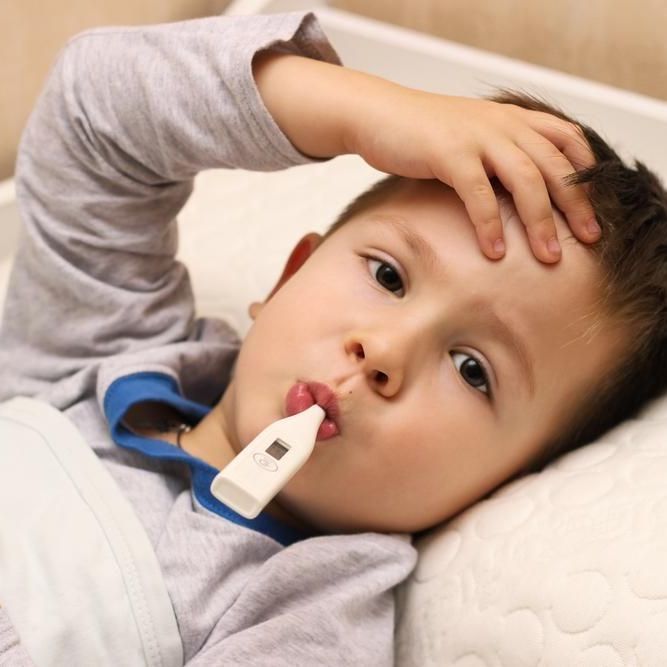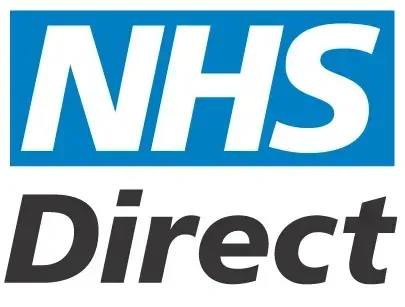Fever
What causes a high temperature?
Normal body temperature is different for everyone and changes during the day.
A high temperature or fever is usually considered to be 38C or above.
Many things can cause a high temperature. It's not usually a sign of anything serious. It's often just caused by your body fighting an infection, such as a cold or flu. Sometimes it could be a sign of something more serious if your temperature is very high or will not come down.
Symptoms of a fever
You may have a fever if:
- your chest or back feels hotter than usual
- you have other symptoms, such as shivering (chills), sweating or warm, red skin (this may be harder to see on black or brown skin)
- a thermometer says your temperature is 38C or above
Important
If you feel hot or shivery, you may have a high temperature even if a thermometer says your temperature is below 38C.
Symptoms common in children
A high temperature (fever) is very common in young children, usually returning to normal within 1 to 4 days. A normal temperature in babies and children can vary slightly from child to child, usually between 36-37.9C.
If your child has a high temperature, they might:
- feel hotter than usual when you touch their back or chest
- feel sweaty
- look or feel unwell
- have a seizure or fit, called a febrile seizure
Treatments (adults)
Treating a fever
- get lots of rest
- drink plenty of fluids (water is best) to avoid dehydration – drink enough so your pee is light yellow and clear
- take paracetamol or ibuprofen if you feel uncomfortable
Try to stay at home and avoid contact with other people until you do not have a high temperature.
Urgent advice:
Ask for an urgent GP appointment or get help from NHS 111 if you have a high temperature and you've been treating it at home but it's not getting better or is getting worse. You can call 111 or get help from 111 online.
Treatments (children)
Do
- give them plenty of fluids – if your baby is breastfed, continue to breastfeed as normal
- look out for signs of dehydration
- give them food if they want it
- check on your child regularly, including during the night
- keep them at home
- give them paracetamol or ibuprofen if they're distressed or uncomfortable – check the packaging or leaflet to make sure the medicine is suitable for your child, or speak to a pharmacist or GP if you're not sure
- get medical advice if you're worried about your child
Treatments (children)
Don’t
- do not undress your child or sponge them down to cool them – a high temperature is a natural and healthy response to infection
- do not cover them up in too many clothes or bedclothes
- do not give aspirin to children under 16 years of age
- do not combine ibuprofen and paracetamol, unless a GP tells you to
- do not give paracetamol to a child under 2 months
- do not give ibuprofen to a child who is under 3 months, weighs under 5kg, has chickenpox, or is dehydrated
- do not give ibuprofen to children with asthma unless it's been recommended by a doctor
Urgent advice (children)
Call 111 or your GP surgery now if your child:
- is under 3 months old and has a temperature of 38C or higher, or you think they have a high temperature
- is 3 to 6 months old and has a temperature of 39C or higher, or you think they have a high temperature
- has other signs of illness, such as a rash, as well as a high temperature
- has a high temperature that's lasted for 5 days or more
- does not want to eat, or is not their usual self and you're worried
- is dehydrated – such as nappies that are not very wet, sunken eyes, and no tears when they're crying
Immediate action required (children)
Call 999 if your child:
- has a stiff neck
- has a rash that does not fade when you press a glass against it
- is bothered by light
- has a fit (febrile seizure) for the first time (they cannot stop shaking)
- has unusually cold hands and feet
- has changes to their skin colour such as blue, grey, paler than usual or blotchy skin (this may be harder to see on brown or black skin), or blue, grey or paler than usual lips or tongue
- is drowsy and hard to wake
- is extremely agitated (does not stop crying) or is confused
- has difficulty breathing (you may notice grunting noises or their stomach sucking under their ribcage), breathlessness or breathing very fast
- is not responding like they normally do, or is not interested in feeding or normal activities
(Source: https://www.nhs.uk/conditions/fever-in-adults/ , https://www.nhs.uk/conditions/fever-in-children/)
Your health is a priority



